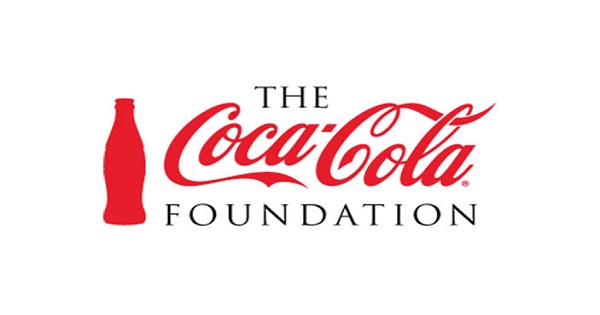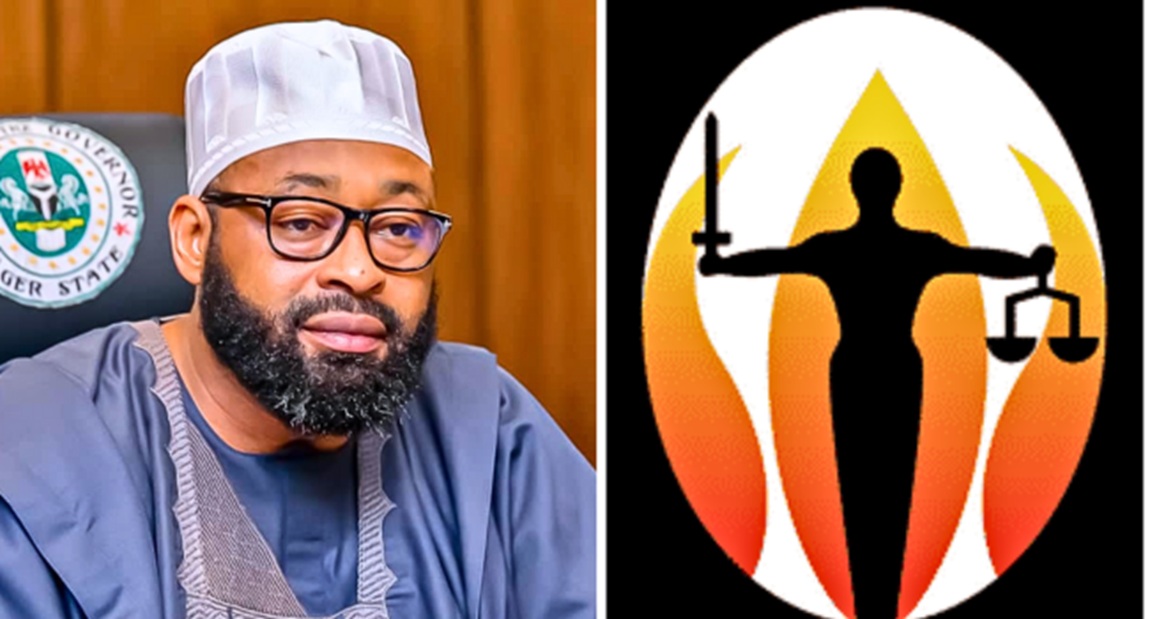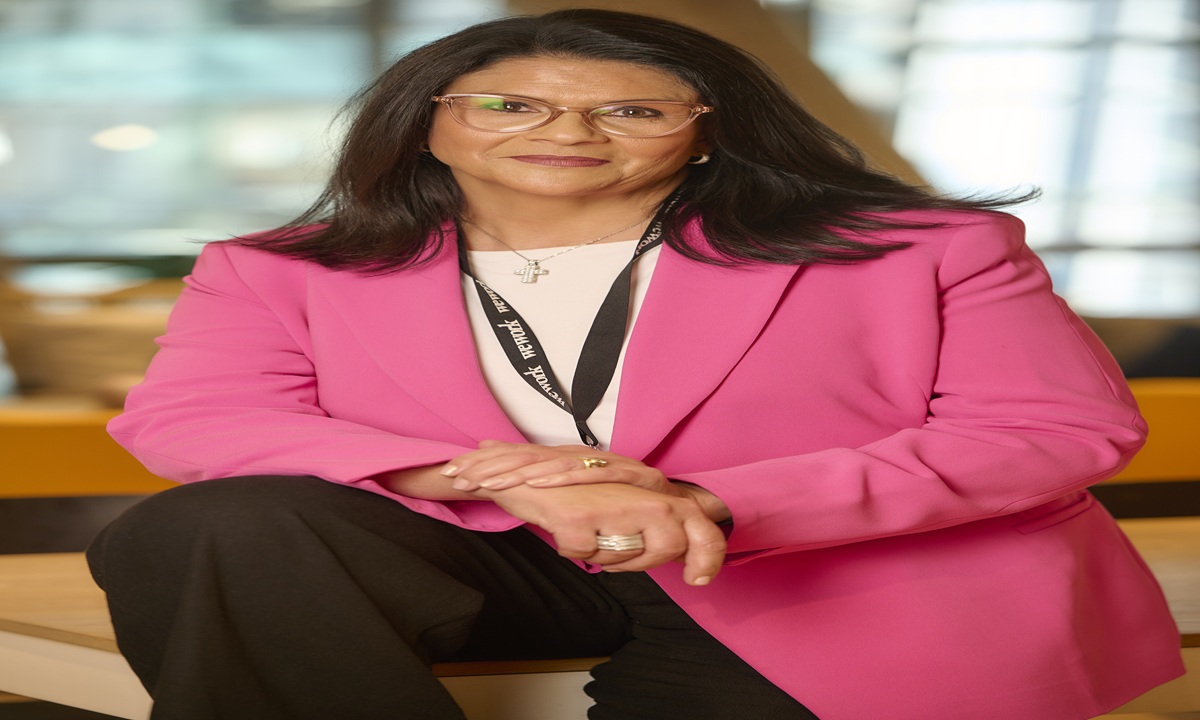Broadcasting
Coca-Cola Launches JAMII: Its New Sustainability Platform in Africa

Coca-Cola Africa Operating Unit (“AOU”) and its bottling partners have announced the launch of JAMII, the new Africa-focused sustainability platform.
The platform houses the Company’s existing and new sustainability initiatives. Through this signature platform, Coca-Cola hopes to attract like-minded partners to help accelerate on-the-ground impact of its initiatives.
The new platform will build and expand on the past accomplishments in three areas; water stewardship, the economic empowerment of women and youth and waste management.
This will be delivered together with bottling partners, system employees, and several NGO partners.
“We recognize the responsibility we have as market leaders to make a meaningful difference – to empower and protect the communities and the environment in which we operate.

“Whether it is giving people access to safe drinking water, creating economic opportunities for people in dire need of it, or reducing the impact of our operations on the environment- we are committed to making that difference,” said Bruno Pietracci, Africa President at The Coca-Cola Company.
Patricia Obozuwa, AOU Vice President for Public Affairs, Communications and Sustainability added; “We chose the name JAMII, a Swahili word that means Community, Society, People – because it represents who we are as Africans and aligns with our values as an organization- our resilience, our commitment, and our spirit of community.
“Consolidating our sustainability efforts under this umbrella will allow us to strengthen our value proposition and make good on our promise to continue to be a trusted partner for sustainable growth in Africa.”
In the area of women and youth economic empowerment, JAMII will promote and stimulate entrepreneurship opportunities through the provision of improved access to skills training, networks, finance & markets.
To date, over 2 million women across Africa have been economically enabled as part of the 5by20 program.
In the area of water stewardship, we will replenish 100% of the water used in production of our products by managing water use efficiency in our operations, supporting the conservation of natural water resources and improving community water access and climate change adaption.
So far, combined efforts by Coca-Cola Africa, The Coca-Cola Foundation and its partners have resulted in sustainable access to drinking water for over 6 million people through the Replenish Africa Initiative (RAIN).
For waste management, Coca-Cola Africa is committed to driving a world without waste. Nearly all of Coca-Cola’s packaging is already recyclable with the goal of recycling the equivalent of 100% of its packaging waste by 2030.
Obozuwa added that “Coca-Cola Africa is already forming new partnerships to facilitate the implementation of JAMII projects that will deliver on these goals.”
Internally, JAMII will inspire employees to make a difference in their immediate communities. Employee-nominated charities will receive grants and employee volunteering will be encouraged.
Also, The Coca-Cola Employee Disaster Relief Fund will support employees facing financial hardship as a result of a natural disaster.
Broadcasting
SERAP, Editors Sue Niger Governor over Badeggi FM Shutdown Threat

Socio-Economic Rights and Accountability Project (SERAP) and the Nigerian Guild of Editors (NGE) have filed a lawsuit against Umar Bago, Niger State Governor, and the National Broadcasting Commission (NBC) over what they described as “the ongoing intimidation” of Badeggi FM Radio, Minna, and the threat to shut down the station.

This was contained in a statement on Sunday by Kolawole Oluwadare, deputy director, SERAP, accusing NBC of failing to stand in defence of the local station.
PUNCH Online had reported that Bago ordered the closure and the revocation of the licence of Badeggi Radio 90.1 FM in Minna over alleged public incitement.
However, in suit number FHC/L/CS/1587/2025, filed last Friday at the Federal High Court, Lagos, SERAP and NGE are seeking to determine “whether by Section 22 of the Nigerian Constitution 1999 (as amended) and section 2(1)(t) of the NBC Act, the NBC has the legal duty to protect Badeggi FM from the ongoing intimidation from the governor.”
They are also seeking “an order of perpetual injunction restraining the Niger state governor and NBC from further harassing, intimidating and/or threatening to shut down Badeggi FM radio, revoke its licence and profile the station’s owner.”
The groups argued, “The ongoing intimidation and threat by Mr Bago to strip Badeggi FM station of its licence, further threat to demolish the station’s premises and profile its owner is unlawful and a violation of the rights to freedom of expression, access to information, and media freedom.”
They described allegations of inciting violence against the station and its owner as “vague, unfounded and unsubstantiated and apparently made to silence the radio station.”
The suit, filed on behalf of SERAP and NGE by lawyers Kolawole Oluwadare, Oluwakemi Agunbiade, and Andrew Nwankwo, read in part, “The media plays an essential role as a vehicle or instrument for the exercise of freedom of expression and information – in its individual and collective aspects – in a democratic society.
“Intimidating, harassing and silencing critical or dissenting voices under the guise of vague and unsubstantiated national security concerns is a fundamental breach of the Nigerian Constitution and Nigeria’s international human rights obligations.
“The ongoing intimidation and harassment of Badeggi FM and its owner is capable of discouraging participation of the press in debates over matters of legitimate public concern ahead of the 2027 general elections.”
SERAP and NGE are therefore asking the court for the following reliefs, “A declaration that by the combined provisions of Section 22 Nigerian Constitution and section 2(1)(t) of the National Broadcasting Act, the NBC is obligated by law to protect Badeggi FM station and other broadcasting outlets in Nigeria from undue interference from unauthorised persons or entity.
“A declaration that the failure and/or neglect of the NBC to protect and defend the independence of the radio station against arbitrary executive interference constitutes a breach of its statutory duty to ensure fair, independent, and lawful broadcasting practices in Nigeria.
“A declaration that the ongoing intimidation and threat issued by Mr Bago to strip Badeggi FM station of its operational licence and further threat to demolish the station’s premises is unlawful and a violation of the rights to freedom of expression, access to information, and media freedom.
“A declaration that the threat issued by the Bago to strip Badeggi FM radio station of its operational licence encroaches upon the statutory powers of the NBC as provided for under section 2 of the National Broadcasting Commission Act.
“An order of perpetual injunction restraining the governor and NBC, its agents and privies from harassing, intimidating and/or threatening to revoke the operating licence of Badeggi FM station or any other broadcasting outlet in Niger State.”
It was said that no date has been fixed for the hearing of the suit.
Broadcasting
Amaarae Crowned Spotify’s EQUAL Africa Artist for August

Spotify has named Ghanaian trailblazer Amaarae as the EQUAL Africa artist for August, spotlighting her as one of the continent’s artists who continues to push creative and cultural boundaries with every beat, lyric, and look.

Amaarae, born Ama Serwah Genfi, raised between Ghana and the U.S.A often pulls her musical inspiration from the cultures and genres she grew up with. She has consistently pushed the boundaries of sound and identity, with her unique fusion of alternative, pop, R&B, and Afrobeats cementing her place as a singular voice in modern music.
Her musical journey took a turn in a computer lab in Ghana in 2009, where she taught herself to make beats on a cracked version of FL Studio. That moment sparked the fire for a career that would go on to produce game-changing projects like “The Angel You Don’t Know” and global hits such as “SAD GIRLZ LUV MONEY”.
Amaarae’s inclusion on Spotify’s Global Impact List for the first half of the year, highlighting the most-exported Ghanaian songs, was no surprise. She has become a symbol of how African music is travelling further, faster, and louder than ever before.
With her latest album BLACK STAR she returns to her Ghanaian roots with bold energy, crafting what she calls a “rallying cry for youth culture around the world. This album is bringing the alternative community to the forefront and being fearless about that.”
“I navigate the music world with balance, willpower, and strength. The challenges are real, don’t get me wrong, but I put my blinders on, lock into tunnel vision, and get to work. And when I come across another woman on the journey, especially a Black woman, I do my best to share knowledge, create opportunities, and lighten the load where I can,” says Amaarae.
As part of Spotify’s EQUAL programme, which amplifies women’s voices worldwide, Amaarae joins a growing list of African women shaping the future through sound and self-expression.
“Amaarae embodies the spirit of boundary-pushing creativity that EQUAL stands for,” says Phiona Okumu, Spotify’s Head of Music for Sub-Saharan Africa. “Her artistry is bold, distinct, and unapologetically authentic – qualities that continue to inspire a new generation of artists across the continent and beyond.”
We sat down with Amaarae to learn more about her and her music:
1. What is that one surprising thing your fans might not know about you?
Amaarae: I’m one step away from being legally blind! My vision is a -7 and I have astigmatism!!
2. When did you realise that making music was in your destiny and what is your WHY for pursuing this craft?
Amaarae: When I moved back home to Ghana in 2009, I was learning how to make beats and record myself at the back of the computer lab. Someone had installed a cracked version of FL.
3. Which African songs or artists did you grow up listening to?
Amaarae: The list goes on and on. Daddy LUMBA (RIP), Terri Bonchaka, MzBel, Abrewa Nana, Obrafour’s legendary album Pae Mu Ka, Sarkodie, Kwadwo Antwi. I could go all day.
4. To someone who has never heard your music, how would you describe the sound, tone, and style?
Amaarae: Let’s encourage listeners to be curious and adventurous! If you’re reading this and you’ve never heard my music, I dare you to go listen! And tell me how YOU would describe my sound.
5. Any advice for someone dreading following their dreams?
Amaarae: The regret does more damage than the effort.
Broadcasting
Humans + Machines: Building the workforce of the future

By Ursula Fear, Senior Talent Programme Manager | Salesforce
Is AI coming for your job, or is it already working beside you? As its use becomes more routine, artificial intelligence is looking less like a threat and more like a teammate: answering queries, making decisions, chasing leads, processing invoices, and drafting content around the clock.

Ursula Fear, Senior Talent Program Manager, Salesforce
This new class of digital labour is changing how teams function, how targets are met, and how people spend their time at work. From now on, almost every job, team, and company will involve AI agents – systems that can analyse vast datasets, apply human-like reasoning, and act independently. Their presence is set to influence workflows, increase productivity, support innovation, and redefine roles across the organisation.
Rather than replacing people, AI is tilting the workload. Salesforce research shows that 23% of HR teams plan to redeploy employees into roles that make better use of their uniquely human strengths. At the same time, agentic AI adoption is projected to surge by 327% over the next two years (from roughly 15% adoption today to about 64% by 2027).
This shift is tied to anticipated productivity gains of 30% per employee and labour cost reductions of 19%, equating to about $11,000 in savings per employee annually, based on Organisation for Economic Co-operation and Development (OECD) wage averages. Rather than replacing people, organisations are preparing to reskill and redeploy workers, enabling humans to focus on higher-value roles that emphasise creativity, strategy, and interpersonal skills.
A recent Gartner poll further found that 95% of customer service teams intend to retain human agents to help define and guide the role of AI, reinforcing the value of a “digital first, not digital only” approach. Gartner further says that by 2027, half of the organisations that planned to significantly reduce their customer service workforce will abandon those plans, highlighting the limits of going fully “agentless”.
For African countries, the rise of digital labour presents an opportunity to build modern, inclusive workforces without being bound by outdated development models. But realising this potential depends on sustained investment in skills training, digital infrastructure, and equitable access to AI tools.
Train for tomorrow
Africa has the world’s youngest population. It’s bursting with entrepreneurial energy. But many young people still don’t have access to the tools and skills that will define the next era of work. If the continent wants to lead in the digital labour revolution, it should act now by investing in digital infrastructure, prioritising skills development, and forging partnerships that make future-focused training widely accessible.
Yes, the skills gap is real and broadband internet is still a luxury in many communities. But on the upside, AI training doesn’t require a university degree. Much of it is free, online, and accessible to anyone with a smartphone and a curious mind.
That opens the door to governments, educators, businesses, and civil society to step up to update school curricula, expand digital infrastructure, and support public-private training partnerships. All of this matters: not just for economic growth, but for social inclusion, too.
If these foundations are put in place, African countries could not only meet the needs of their growing population but also leapfrog outdated development models.
From entry-level to in-demand
When AI begins to handle the simpler tasks, it’s easy to worry about what’s left for those starting out. Entry-level jobs aren’t disappearing though. Instead of doing routine work, newcomers will now need to build skills in oversight, collaboration, and using AI tools effectively from day one. The ladder still exists; it just starts in a different place.
This will require a different kind of training – not just technical know-how, but in soft skills like empathy, adaptability, ethical judgement, and communication, which are all human traits that help teams thrive.
AI’s presence in the workplace may be concerning, with reports of job cuts due to its adoption (here, here, here, and here), but all is not as it seems.
Research suggests a more balanced perspective: One of the most comprehensive studies, from the National Bureau of Economic Research, tracked 25,000 workers across 7,000 Danish firms using AI chatbots. It found no significant changes to jobs, wages, or working hours. Productivity rose by around 3%, without leading to layoffs.
The St. Louis Fed found something similar. Based on large-scale surveys in the US, researchers reported one in four workers now use generative AI weekly, saving on average just over two hours a week. Spread across the entire labour market, that translated into a 1.1% productivity gain. Crucially, there was no sign this efficiency came at the cost of jobs.
Adding to this, a 2024 study by Mäkelä and Stephany analysed over 12 million US job listings and revealed that demand is surging for “AI-complementary” skills such as resilience, teamwork, digital literacy, and analytical thinking. These are the very human capabilities that help people work effectively with AI. The study found AI-focused roles are nearly twice as likely to list these skills, and they command wage premiums of 5–10%. Even more telling: the positive impact of these complementary skills outweighs the substitution effects of AI by up to 70%.
These findings all suggest that AI isn’t replacing workers; it’s helping them work smarter and more efficiently. To thrive in this blended future, we need to prepare today, by building the right skills, expanding access, and embracing AI not as a threat, but as a partner in progress.
Because the future of work won’t be entirely human, nor entirely automated – it will be a blend of both.

 News1 day ago
News1 day agoGoogle Hit by AI-driven Cyber Attack

 General News1 day ago
General News1 day agoKuwait Busts Nigerian Cybercrime Ring Targeting Telecom Tower, Banks

 E-Business1 day ago
E-Business1 day agoZequence Digital Boss Calls for Strong IP Laws Enforcement, to Protect Nigeria’s Software Sector

 News1 day ago
News1 day agoFIRS Rolls out e-invoicing System for Large Corporate Taxpayers

 Telecom1 day ago
Telecom1 day agoT2 Commits to Innovation, Resilience as Customer-centric Ethos Form New Focus

 Telecom1 day ago
Telecom1 day agoMTN Nigeria’s Mega Billion Promo Turns Airtime into Fortune for Thousands Amid Economic Strain

 Telecom1 day ago
Telecom1 day agoI see Crisis, Resignations @ MTN, Airtel, Others – Primate Ayodele

 E-Business1 day ago
E-Business1 day agoPalmPay Partners AXA Mansard Health to Make Digital Insurance Accessible, Affordable



























